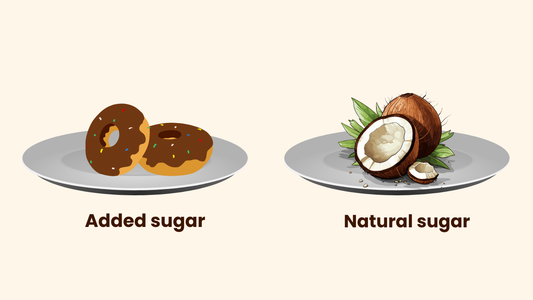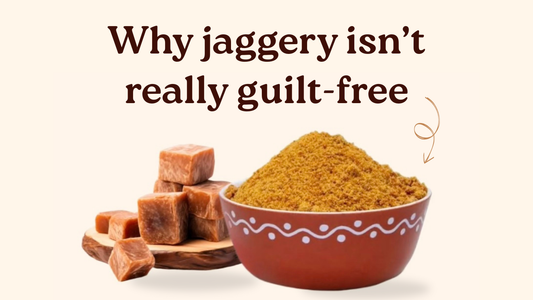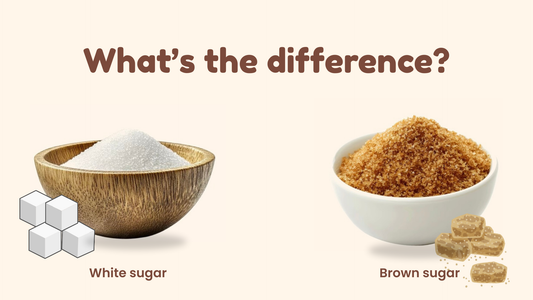The Sweet Enemy You Don’t See
We all know sugar can cause weight gain, cavities, and diabetes. But there’s a deeper, hidden problem that most people don’t talk about: inflammation.
Chronic inflammation is like a slow fire inside the body. You don’t feel it every day, but over time, it fuels some of the world’s biggest health problems - diabetes, heart disease, arthritis, even cancer.
And here’s the shocking part: sugar is one of the biggest triggers. Let’s uncover the science behind how sugar stirs up inflammation, what studies say, and why reducing sugar is one of the best anti-inflammatory choices you can make.
What Is Inflammation?
Inflammation is the body’s defense system.
• Acute inflammation: Short-term, protective. Example: swelling after a cut. It heals the body.
• Chronic inflammation: Long-term, harmful. The immune system stays overactive, attacking healthy tissues. This type is silent, hidden - and deadly.
Chronic inflammation is linked to:
• Type 2 diabetes
• Obesity & metabolic syndrome
• Heart disease
• Cancer
• Alzheimer’s disease
• Autoimmune conditions
Now let’s connect the dots: where does sugar fit in?
How Sugar Fuels Inflammation: The Science
1. Blood Sugar Spikes and Insulin Overload
When you eat added sugars (soda, sweets, processed foods):
• Blood glucose shoots up.
• The pancreas pumps insulin to manage it.
• Repeated spikes cause insulin resistance, a state where cells stop responding.
Insulin resistance triggers inflammatory pathways in the body, leading to metabolic chaos.
2. Advanced Glycation End Products (AGEs)
When sugar molecules attach to proteins or fats in the body, they form harmful compounds called AGEs.
• AGEs damage tissues.
• They generate free radicals that stress cells.
• They activate inflammatory messengers like TNF-α and IL-6.
Studies show high sugar diets significantly raise AGE levels, speeding up aging and inflammation.
3. Excess Fructose and Liver Stress
Fructose (in table sugar and high-fructose corn syrup) is metabolized almost entirely in the liver. Excess intake leads to:
• Fatty liver buildup
• Elevated uric acid (linked to gout & inflammation)
• Increased C-reactive protein (CRP), a blood marker of inflammation
A 2016 study in the Journal of Hepatology found that high fructose intake directly drives non-alcoholic fatty liver disease (NAFLD), now one of the fastest-growing health epidemics.
4. Gut Microbiome Imbalance
Too much sugar alters gut bacteria.
• Bad bacteria and yeast thrive on sugar.
• This creates leaky gut syndrome - small gaps in the intestinal lining.
• Toxins “leak” into the bloodstream, sparking whole-body inflammation.
Research in Nature Communications (2020) confirmed that diets high in added sugar disrupt gut microbiota and amplify inflammatory responses.
What Diseases Does Sugar-Driven Inflammation Cause?
1. Diabetes & Metabolic Syndrome
Chronic sugar intake → insulin resistance → inflammation → type 2 diabetes.
2. Heart Disease
Sugar raises triglycerides, lowers HDL (“good cholesterol”), and inflames blood vessels.
A Harvard study found people who got 25% of calories from sugar had twice the risk of dying from heart disease.
3. Obesity
Sugar calories promote fat storage, especially visceral fat (around organs). This fat is highly inflammatory, releasing harmful cytokines.
4. Cancer
Inflammation and high insulin create an environment where cancer cells thrive. Studies link excess sugar intake with higher risks of breast and colorectal cancer.
5. Brain Disorders
Sugar-driven inflammation is also tied to Alzheimer’s - now called “type 3 diabetes” by some researchers.
Research Evidence: Sugar and Inflammation
• American Journal of Clinical Nutrition (2002):
High-glycemic foods (like sugar) raise CRP, a key inflammation marker.
• Journal of Nutrition (2011): Fructose consumption increases inflammatory cytokines in overweight adults.
• Harvard School of Public Health: Sugary drinks linked to higher inflammation, obesity, and heart disease risk.
• British Medical Journal (2021): Added sugars directly associated with increased risk of chronic inflammation-related diseases.
The evidence is overwhelming: sugar doesn’t just give you empty calories - it actively stokes inflammation in the body.
Natural Sugar vs Added Sugar: Inflammation Impact
• Natural sugars in fruits and dairy: Come with fiber, antioxidants, and nutrients that protect against inflammation. Eating fruit lowers CRP levels in studies.
• Added sugars in soda, desserts, processed foods: Fuel inflammation because they hit the body fast and hard, with no protective nutrients.
👉 It’s not just “sugar” - it’s the form and context.
How to Cut Sugar and Reduce Inflammation
1. Ditch Sugary Drinks
Colas, packaged juices, energy drinks = liquid sugar bombs. Replace with water, lemon water, or monk fruit-sweetened beverages.
2. Check Labels for Hidden Sugars
Look for words like sucrose, dextrose, maltose, glucose syrup, jaggery, honey - they all count.
3. Choose Whole Foods
Fruit instead of fruit juice. Whole yogurt instead of flavored. Homemade snacks instead of processed ones.
4. Use Natural Alternatives
Instead of sugar or jaggery, switch to monk fruit sweetener - zero calories, zero glycemic impact, no inflammation triggers.
EPRA Farms Perspective: A Smarter Sweetness
At EPRA Farms, our mission is not just to sell a sweetener, but to educate India on sugar’s hidden dangers.
Our monk fruit sweetener:
• Contains no artificial additives.
• Blended with erythritol (a safe sugar alcohol that doesn’t spike blood sugar).
• A true clean-label alternative for families.
By cutting added sugars and choosing clean sweetness, you’re not just avoiding calories - you’re protecting your body from the slow burn of inflammation.
Final Takeaway: Sugar and Inflammation
• Sugar doesn’t just add calories - it fuels chronic inflammation.
• Chronic inflammation is the hidden driver behind diabetes, heart disease, obesity, cancer, and Alzheimer’s.
• Natural sugars in fruits and dairy are fine, but added sugars in processed foods are the real enemy.
• Cutting back sugar is one of the most powerful anti-inflammatory actions you can take for long-term health.
👉 If you want sweetness without inflammation, monk fruit is the clean, natural solution.





